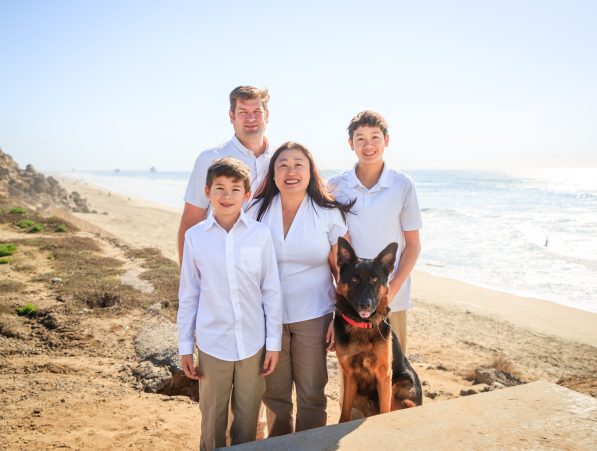

By Janet Nguyen
January 1, 2024
As a lifetime dog owner and animal lover, I have been watching the disaster unfold over the past year surrounding Orange County’s animal shelter, OC Animal Care.
I’m extremely proud to represent Orange County in the California Senate and strongly believe we should be a shining example to the rest of the state and even the nation.
So it’s with sadness and anger that I’ve seen our new $35-million state of the art animal shelter turn into some gulag where healthy, happy would-be pets are secretly killed for no apparent reason and those with catastrophic injuries die waiting for proper medical care.
All of this takes place outside the watchful eye of the public, as they are forbidden to freely peruse the “animal care” facility they paid for with tax dollars. Despite a scathing Grand Jury report and an even more horrifying lawsuit this year, OCAC has decided that remaining closed is the new normal and the Board of Supervisors appears to be satisfied with this result.
My staff has spoken to numerous shelter volunteers and rescue organizations who paint a sickening portrayal of an agency with little oversight, where animals apparently go to die. The kill rate of dogs has increased by 187% from the third quarter of 2021 through the next 12 months, the Grand Jury reported.
In 2018, less than 1% of dogs were euthanized. Then COVID struck and the facility closed like everything else. But it never reopened, unlike every other county in the state.
And I think I know why: pens are routinely coated in feces and urine and large dogs are riddled with anxiety as they only get out for exercise a couple times a week, according to the lawsuit and volunteers talking to my office.
“I, along with the other volunteers, were shocked, dismayed and overwhelmed with sadness when we arrived at OCAC to discover dogs like Max, Norma Jean, Sterling, Angel, Benjamin, among others, were missing from their kennels and had in fact been killed by OCAC,” volunteer Heather McDermott-Perez, a firefighter, said in an affidavit. “OCAC falsely labels an animal’s temperament and behavior [negatively] in support of their decision to euthanize.”
State law says government shelters cannot euthanize animals without giving rescues a chance at adoption. Yet this seems to happen routinely.
In fact, no one knows how many dogs are housed in the infamous Building 1, which has the “irredeemable” animals which volunteers are forbidden from walking or caring for. One man recounted having his dog seized a year ago and he is still waiting to retrieve him, my office was told.
The most gruesome part of all this are photos that I can never unsee: a husky curled up in a ball where blood gushes from a wound, a kitten with half a leg missing and a poodle with the skin ripped off a leg. All of these suffered for days waiting for veterinarian intervention.
But despite a $26.6-million budget, OCAC apparently can’t foot the bill for surgeries to save these animals. Instead, they rely on rescue groups to save the day and pay for the surgeries on their shoestring budgets, according to volunteers and internal documents reviewed by my office.
The shelter has plenty of money to care for the wellbeing of these animals: it has 137 staff. It’s the allocation that’s the problem. Only 21 people are tasked with feeding, cleaning and exercising the animals and they probably need more veterinarians. I’m left with no other impression other than OCAC appears to be a nuisance for the county.
How else would you explain after 80 years of partnership with the community, that residents must jump through hoops to rescue an animal? Look on the website. Make an appointment to see two animals per visit only. Visit dogs in an enclosed room, not the large grassy area outside. Rescues are also forced to endure this archaic system as well, which I was told was “for the benefit of the dogs so they don’t get overly excited.”
All of these ridiculous rules discourage people from adopting animals, leading to a high number of pets that are euthanized than before COVID when the shelter was fully open. I would like representatives from the animal shelter to explain this to me.It’s unbelievable that the Board of Supervisors, which is the only body that could rectify the situation, has not implemented all of the findings of the Grand Jury report. Instead, the shelter is only allowed to open for free public access a few hours every Saturday and that is supposed to count towards compliance. It doesn’t.
The public does not like this. I do not like this. I will be looking into ways to hold the animal shelter accountable to the citizens that pay the salaries of its managers and fund care for the unfortunate animals who are housed there.
Senator Janet Nguyen represents the 36th District, which includes half of the cities and the entire coast of Orange County and portions of Los Angeles. She has also served on the Orange County Board of Supervisors and in the California State Assembly.
Paid for by Janet Nguyen for Supervisor 2028
